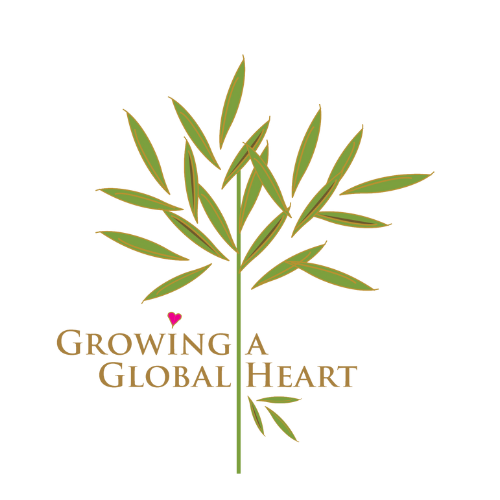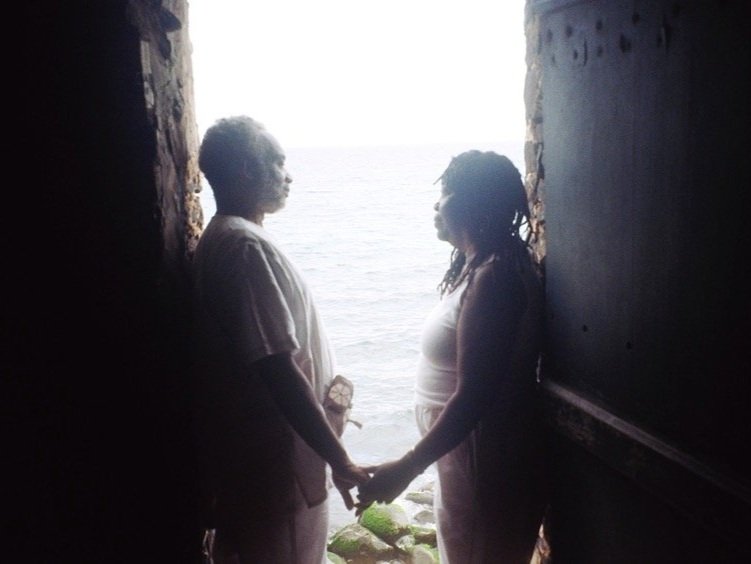Planting the seeds of honor.
A honeymoon turned into a pilgrimage of gratitude
Coming out of the wedding ceremony, our honeymoon turned into a kind of pilgrimage of gratitude and honoring. We wanted to honor the fact that everyone who looked like us in the “New World”– in North and South America, from Canada to the Caribbean to Brazil and beyond – had some long-ago-forgotten ancestor who passed through one of the more than 100 slave dungeons on the western coast of Africa.
The Heartbreak.
In the slave dungeon at Elmina Castle, as we stood in the Door of No Return looking out at the calm blue expanse of the Atlantic ocean, it felt as if we were standing in the past looking into the future. We tried hard to imagine what standing in that door must have meant for some long-ago-forgotten ancestor as she stood there trembling on the precipice of a terrifyingly unknown and uncertain future.
Some of her lineage survived. Our return pilgrimage some 300 years later was to bow in love and appreciation, and in gratitude that some of us survived and were given a chance to contribute to a different future.
Bearing witness in this place, tears flowed uncontrollably. It was hard to process the fact that at this very spot, without interruption, for over 300 years, millions of African men, women and children began their long and terrifying journey into slavery. The names of the people passing through the Door of No Return have all been erased from our historical memory. The names of the mothers, the fathers, the sisters, the brothers, the babies, the aunts, the potters, the weaves, the farmers, the priests, and the healers (most of whom were women).
Brother Ishmael Tetteh’s Questions:
1) What must your marriage be known for?
2) What will it mean for your family, your community and the planet?

